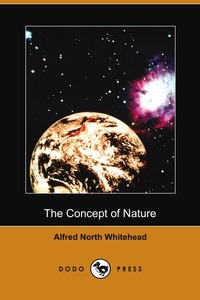Alfred North Whitehead, OM (1861-1947) was an English mathematician who became a philosopher. He wrote on algebra, logic, foundations of mathematics, philosophy of science, physics, metaphysics, and education. Between 1880 and 1910, he studied, taught, and wrote mathematics at Trinity College, Cambridge, spending the 1890s writing his Treatise on Universal Algebra (1898) and the 1900s collaborating with his former pupil, Bertrand Russell, on the first edition of Principia Mathematica (1910). The genesis of Whitehead"s process philosophy may be attributed to his having witnessed the shocking collapse of Newtonian physics, due mainly to Einstein"s work. His metaphysical views emerged in his 1920 The Concept of Nature and expanded in his 1925 Science and the Modern World, also an important study in the history of ideas, and the role of science and mathematics in the rise of Western civilization. In 1927, Whitehead was asked to give the Gifford Lectures at the University of Edinburgh. These were published in 1929 as Process and Reality, the book that founded process philosophy, a major contribution to Western metaphysics. Это и многое другое вы найдете в книге The Concept of Nature (Dodo Press)
The Concept of Nature (Dodo Press)
Подробная информация о книге «The Concept of Nature (Dodo Press) ». Сайт не предоставляет возможности читать онлайн или скачать бесплатно книгу «The Concept of Nature (Dodo Press) »
